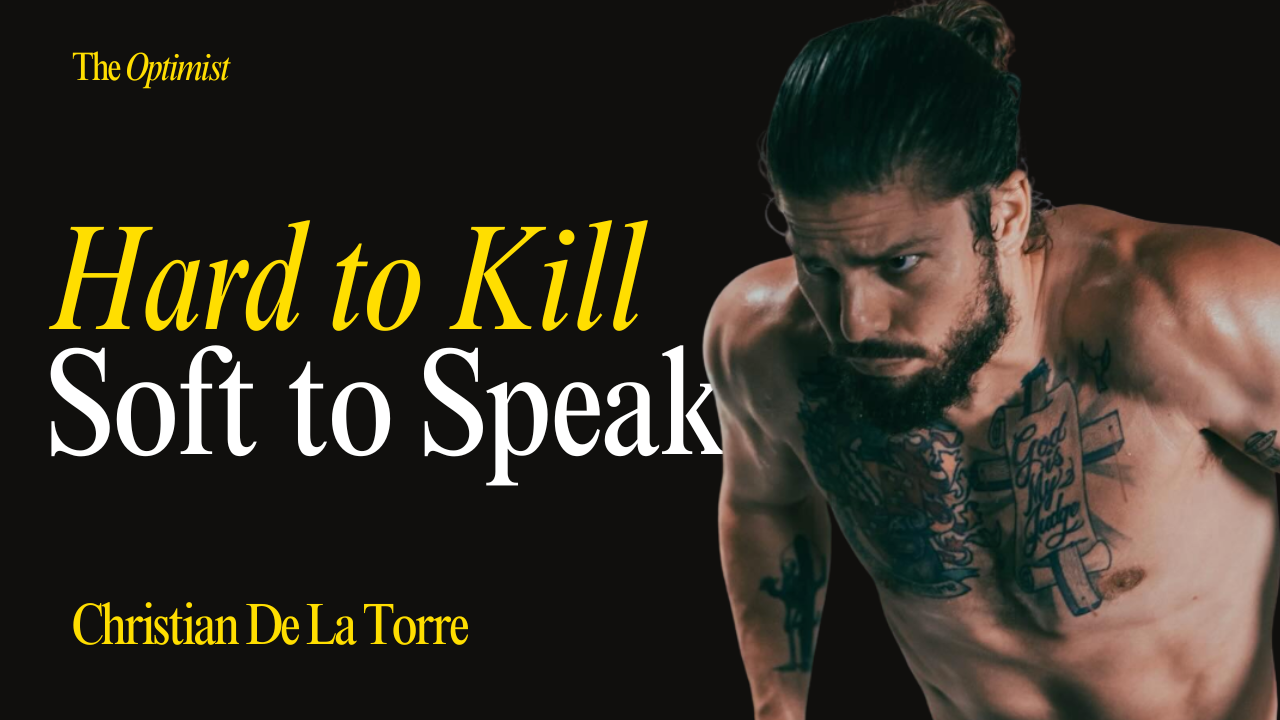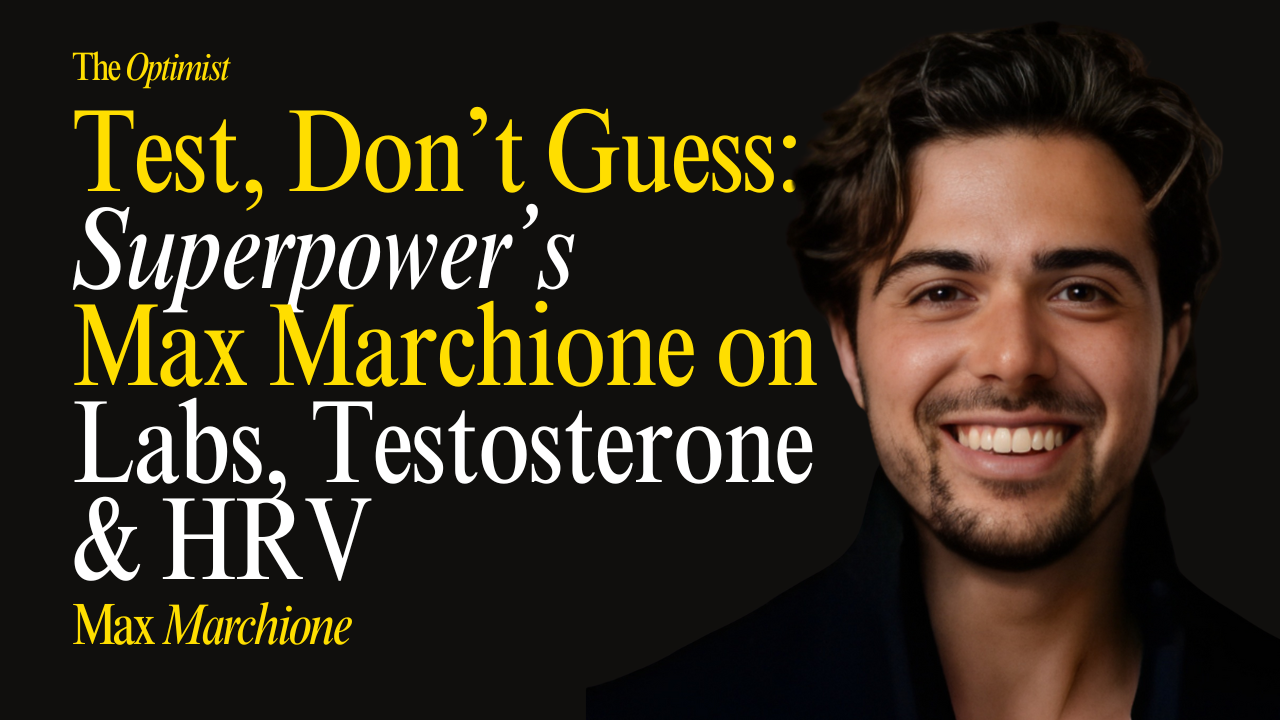"The harshest critic you'll ever face isn't on Twitter or in boardrooms – it's the voice in your own head."
These words hung in the air of our recording studio last week. Adam Greenfeld, founder of Thesis and a leading voice in brain health, had just cut straight to the heart of something I'd been wrestling with. We'd planned to talk about optimization, supplements, and brain function – that's his specialty, after all. But somehow we'd wandered into deeper territory: the complex relationship we have with ourselves.
Most of us are walking around with an invisible scorecard, measuring ourselves against what we "should" be doing. Adam's take? Throw the whole scorecard away. "Should is just society's way of renting space in your head," he told me, grinning. "And it's charging way above market rate."
He's right. I've spent years hosting podcasts, and you know what? The best conversations happen when I stop trying to be the "perfect" host and just get curious. When I'm genuine, guests open up. When I try to be what I think a host "should" be, everything feels forced.
What strikes me most about Adam is how comfortable he is with uncertainty. Despite running a successful brain health company, he starts most of his answers with "I think" or "In my experience." There's no pretense of absolute certainty. In a world where everyone's positioning themselves as an expert, there's something refreshingly powerful about someone who's comfortable saying "I don't know, let's figure it out together."
"Every time I've failed spectacularly," Adam shared, "it's because I was trying to be someone else's version of successful." That hit close to home. When I first started in podcasting, I tried to copy every successful host I admired. Know what happened? I sounded like a bad copy of better originals. It wasn't until I embraced my own voice – quirks and all – that things started clicking.
But perhaps the most profound insight from our conversation was about the power of genuine connections. "Your friends are the mirror that shows you who you really are," Adam says. "Choose that mirror wisely." It's not about surface-level networking, but about fostering deep, transformative relationships that shape who we become. And through these relationships, we learn something crucial: how to laugh at ourselves. Not as an escape, but as a tool for perspective. When you can laugh at yourself, you take away your inner critic's ammunition.
This conversation reminded me why I started The Optimist in the first place. We need more spaces where men can talk about these things – self-doubt, perfectionism, the pressure to have it all figured out. The truth is, learning to be kind to yourself isn't some soft, optional skill. It's the foundation everything else builds on. Your career, your relationships, your impact – it all grows from how you talk to yourself when nobody's listening.
If this resonates, I'd love to hear your thoughts. How do you handle your inner critic? What's worked for you?
You can catch my full conversation with Adam on The Optimist podcast. And if you found this valuable, consider sharing it with someone who might need to hear it today.
Remember: The voice in your head should be your biggest fan, not your harshest critic.

.svg)

